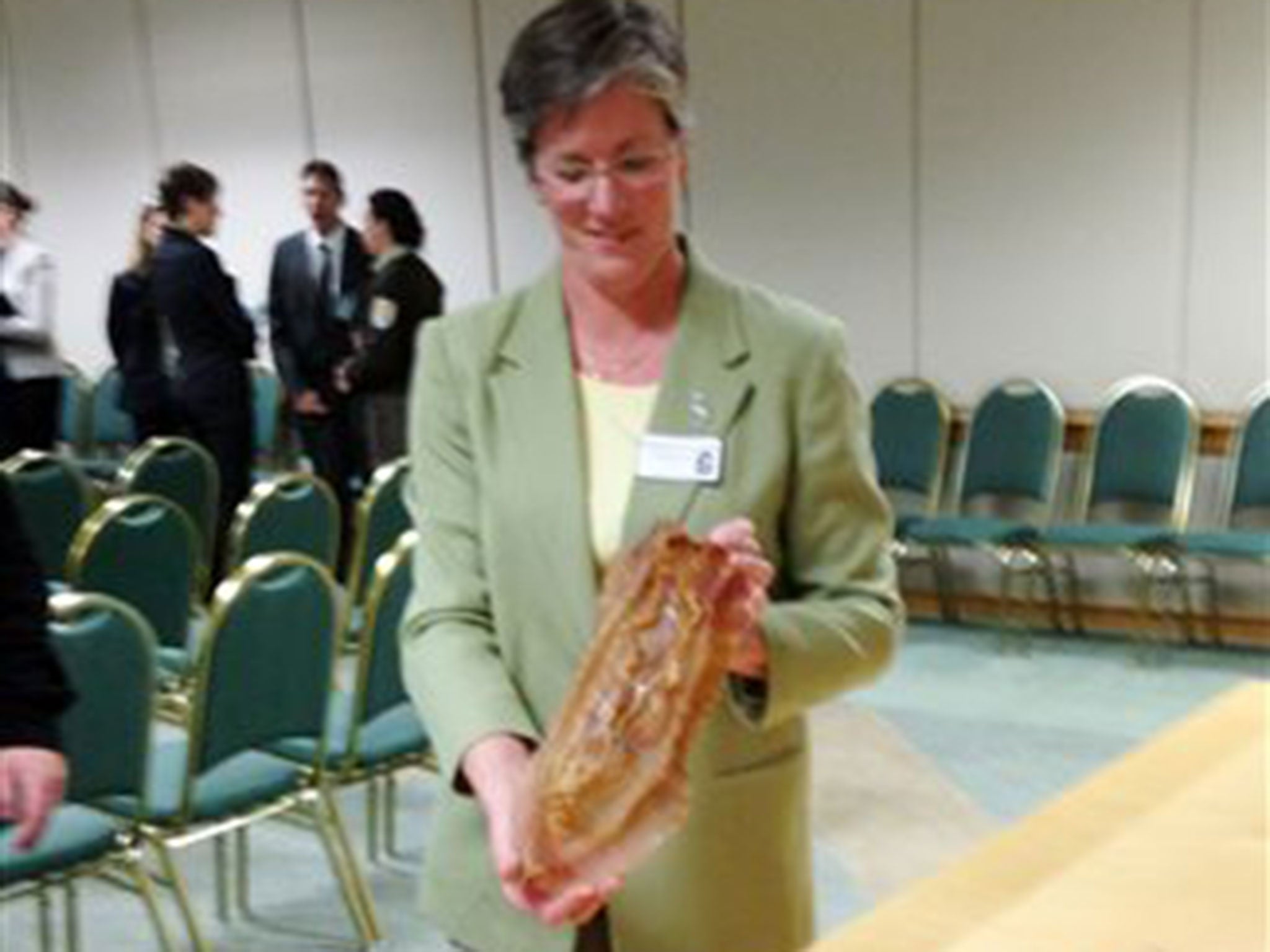Illegal fish bladder trade puts marine species at risk of extinction
Conservationists warn poaching of fish for valuable 'aquatic cocaine' could kill off vaguita porpoise by 2018

Your support helps us to tell the story
From reproductive rights to climate change to Big Tech, The Independent is on the ground when the story is developing. Whether it's investigating the financials of Elon Musk's pro-Trump PAC or producing our latest documentary, 'The A Word', which shines a light on the American women fighting for reproductive rights, we know how important it is to parse out the facts from the messaging.
At such a critical moment in US history, we need reporters on the ground. Your donation allows us to keep sending journalists to speak to both sides of the story.
The Independent is trusted by Americans across the entire political spectrum. And unlike many other quality news outlets, we choose not to lock Americans out of our reporting and analysis with paywalls. We believe quality journalism should be available to everyone, paid for by those who can afford it.
Your support makes all the difference.Two critically endangered sea species, including the world’s smallest porpoise, are in imminent danger of extinction due to an illegal trade in fish swim bladders so valuable that they are known as “aquatic cocaine”.
British conservationists warn that the vaquita porpoise could be extinct by 2018 because of the continued poaching of the totoaba fish in the seas off Mexico to meet demand from Hong Kong and southern China for a sought-after traditional remedy.
The swim bladder of the totoaba, which aids the buoyancy of the fish and is known as “maw”, sells for £64,000 per kilogram in the Far East, creating a lucrative black market for Mexican fishermen in the Gulf of California who use illegal nets in which the vaquita are also caught.
In a new report, the Environmental Investigation Agency (EIA) warns that both the totoaba, which live for up to 25 years and can reach two metres in length, and the vaquita are being pushed to the brink of extinction and more must be done to crack down on the traffickers and retailers behind the trade.
The campaigners, who are to present their findings this week to the annual meeting of the international body on endangered species, warn that the vaquita, whose name translates as “little cow” and is the world’s smallest species of cetacean, faces a particularly dire future with as few as 97 of the mammals left.
Experts have warned that without drastic measures to end all illegal fishing of totoaba - using nets in which the porpoises are also killed as an accidental by-catch - the vaquita could be wiped out within two years.
Clare Perry, leader of the EIA’s Oceans Campaign, said: “The vaquita’s extinction clock stands at one minute to midnight and the species is being pushed into oblivion by the demand of a relatively small number of Chinese consumers for totoaba maw. Less than 100 vaquita are left - and the clock is still ticking.”
Investigators found that despite a fishing of totoaba having been banned 40 years ago and the international trade in “maw” also being outlawed, there remains a strong market in the fish bladders, which are dried and often sold openly by retailers in Hong Kong and the neighbouring Guangdong province of China.
The swim bladders of several species of fish are considered a delicacy in China but totoaba maw is viewed as the most auspicious, offering relief from the symptoms of complaints from joint pain to infertility problems.
As a result, totoaba swim bladders, which can weigh as much as 500g, sell for a minimum of £1,700 per 100g and are often referred to as “aquatic cocaine” or “golden coin”.
These prices represent a dramatic fall compared to the peak in demand reached in 2012, which individual totoaba maws were selling for as much as £106,000.
The Mexican authorities last year announced an emergency programme to try to halt the fishing of totoaba, including a two-year ban on the use of gill nets - the weighted panels of nylon in which the fish and porpoises are trapped.
Such is the value of the trade that Mexican drug cartels are believed to have become involved in the operation to smuggle the bladders to the Far East.
Campaigners argue that the gill net ban must be made permanent and enforcement dramatically improved if the remaining vaquita are to have any chance of survival.
But they will also tell the meeting of the Convention on International Trade in Endangered Species (CITES) in Geneva this week that more must be done to crack down on retailers and smugglers in the Far East.
Ms Perry said: “The vaquita and the totoaba are both fully protected under national and international law. But such safeguards are worthless without urgent intervention on the ground to enforce them.”
Join our commenting forum
Join thought-provoking conversations, follow other Independent readers and see their replies
Comments